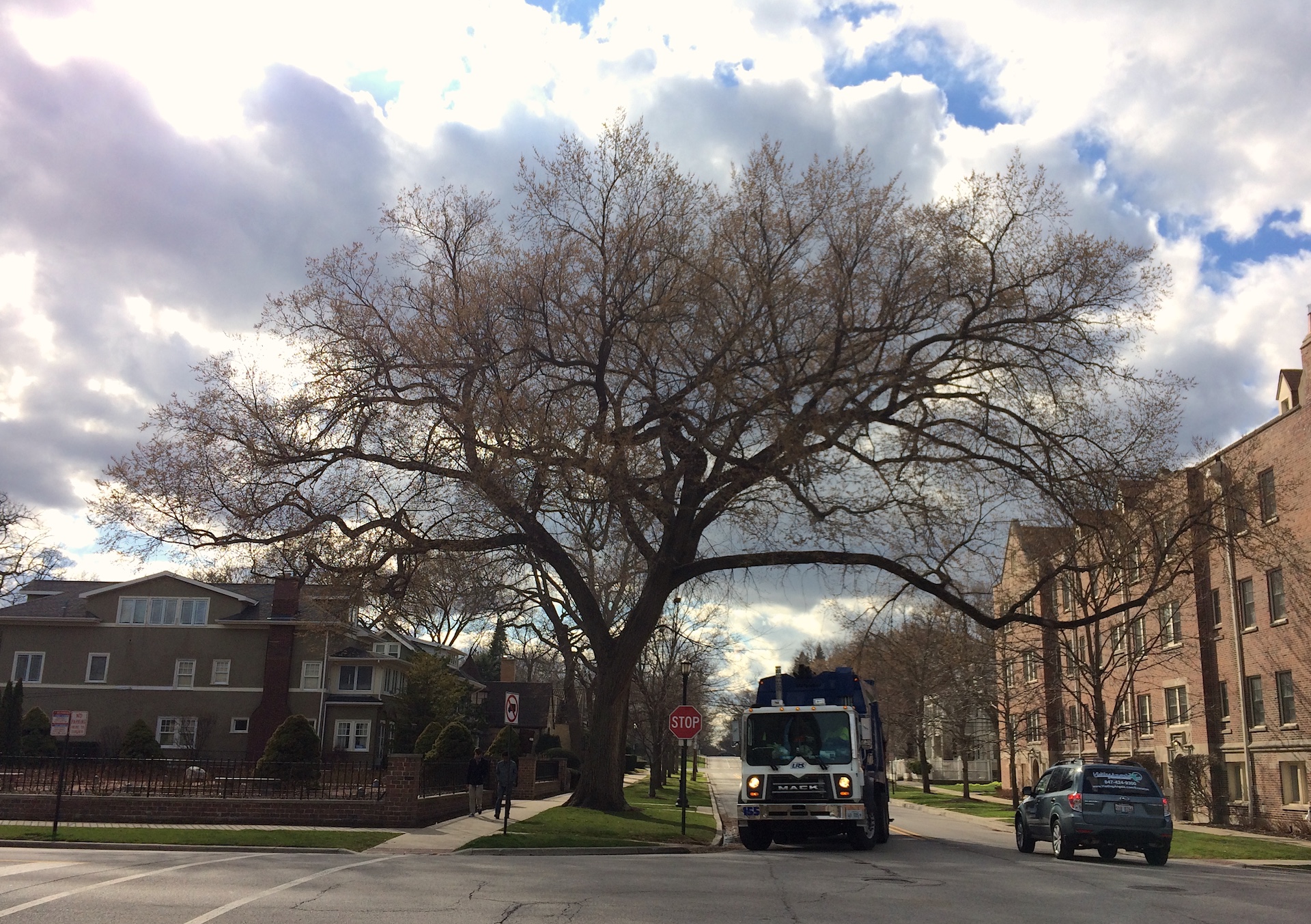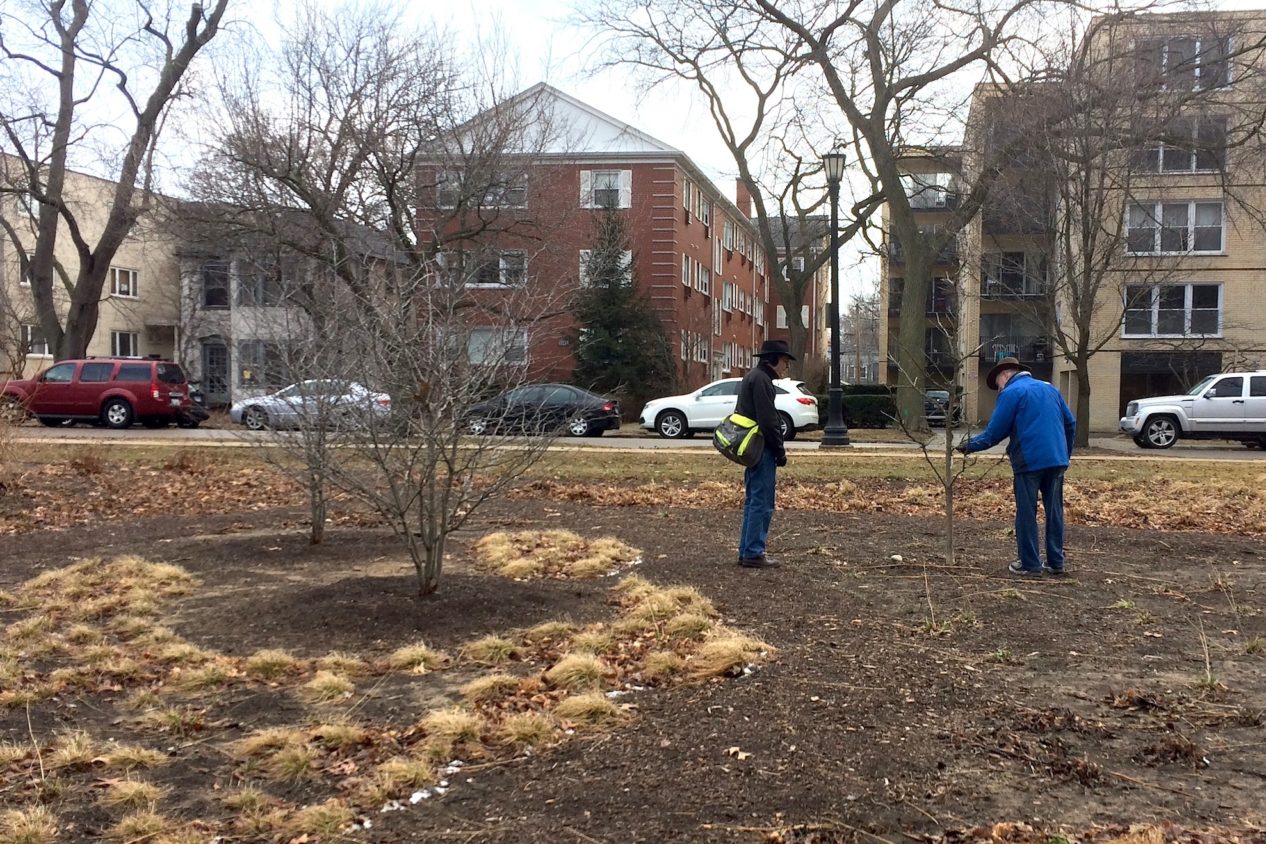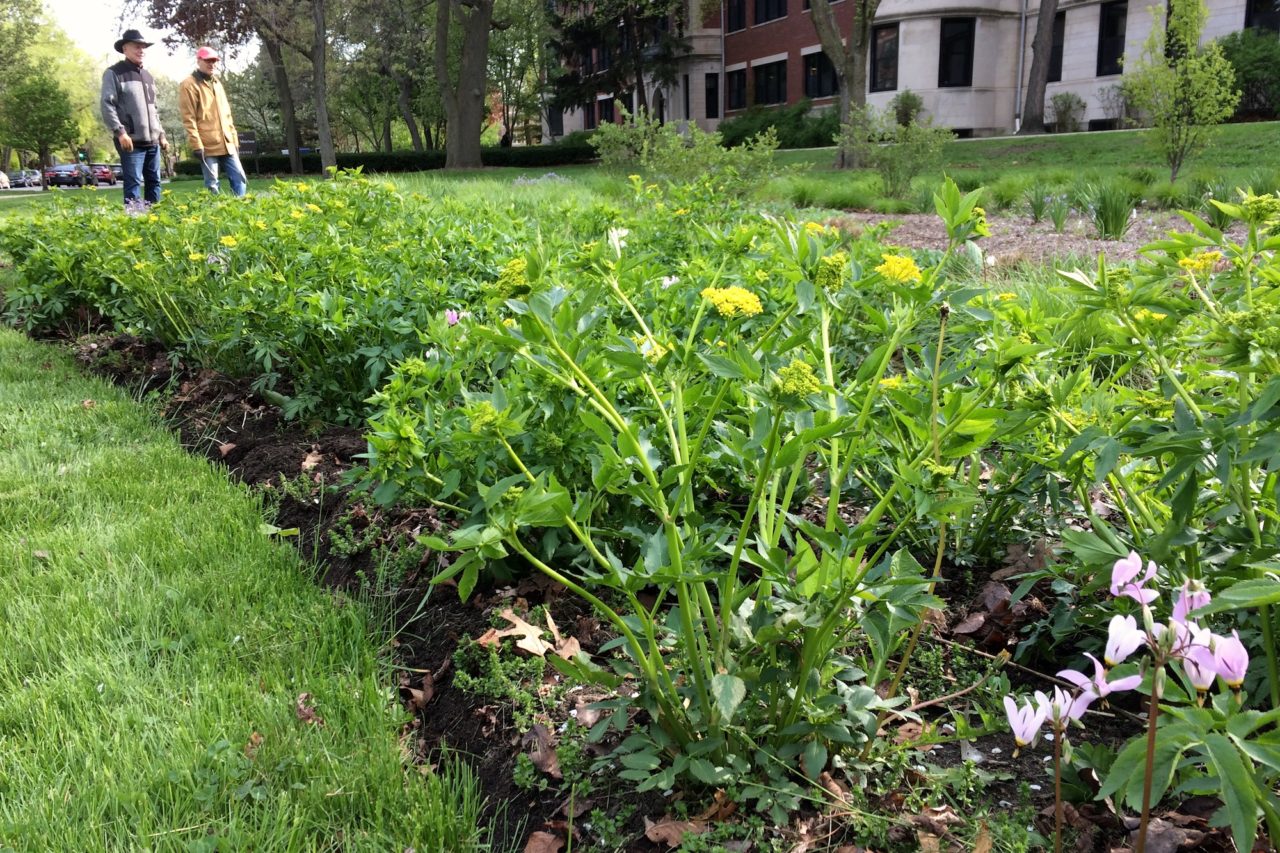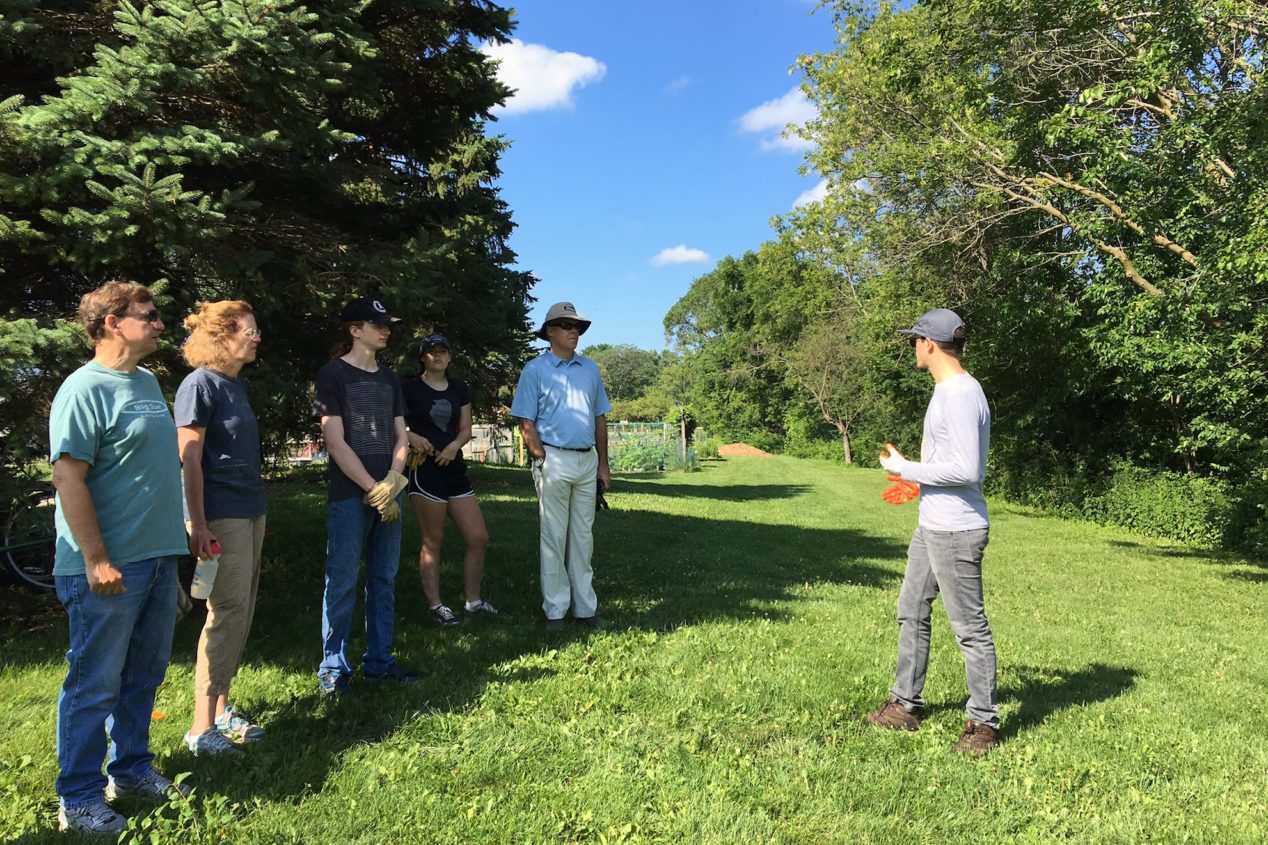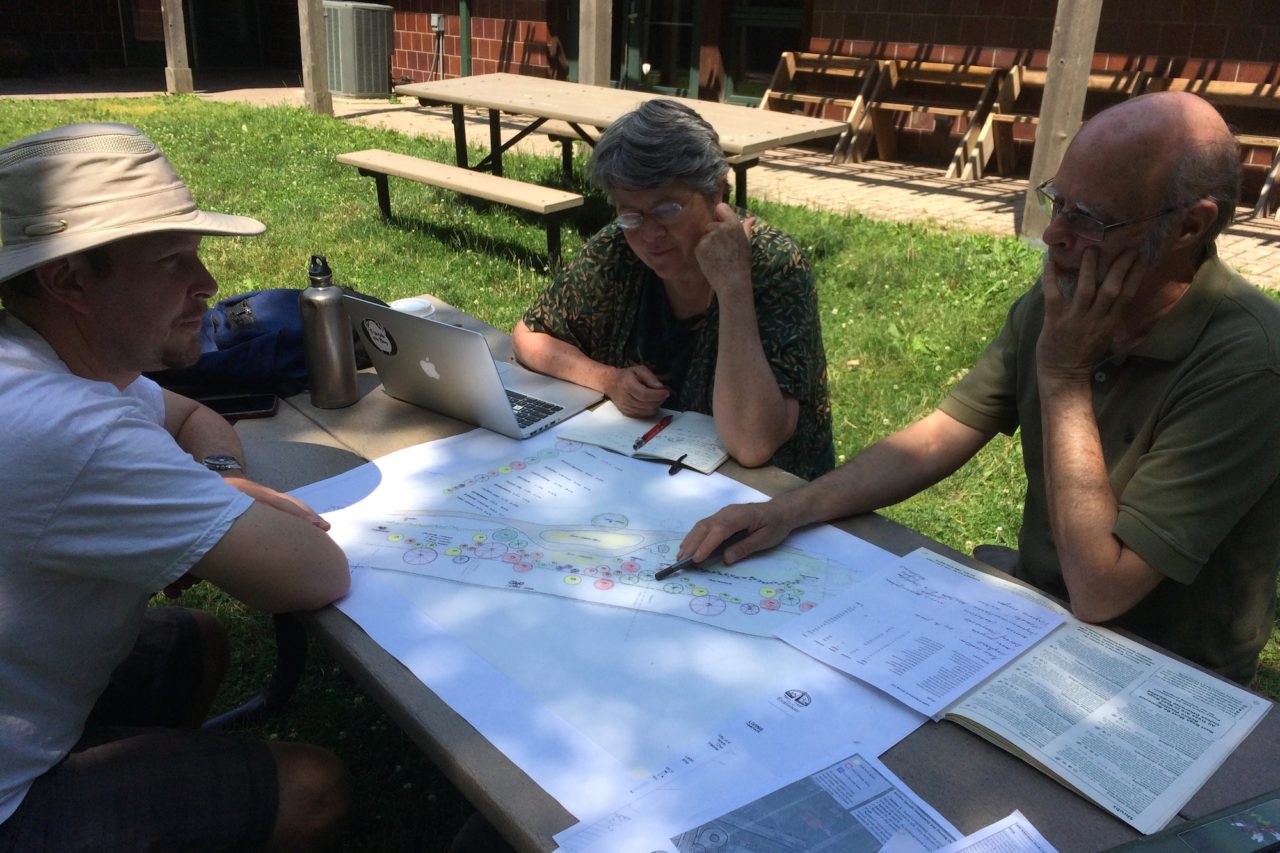While we are staying close to home and outdoor volunteer opportunities are limited, there is still plenty to do to help Evanston’s urban forest.
What’s the urban forest? Basically, it’s everything green and growing in a city. It includes everything from trees in the Ladd Arboretum and other parks and gardens to street trees like this American elm. The urban forest makes cities livable—providing relief from heat, cleaning the air, and even alleviating stress. It also helps remove carbon from the atmosphere and keep stormwater from overwhelming our storm sewers.
Some of the hardest working members of the urban forest are the trees that line our streets. They often grow in tight planting spots and compacted soil and are subject to all kinds of abuses, from bike locks and car doors to mower dings. The result is that street trees all too often fail to survive and grow big enough to provide the benefits we most appreciate from city trees.
We need to help trees live longer. And right now is an ideal time to inspect and care for these trees. You may not be able to work in a group, like these volunteers. But you can help by weeding around street trees and checking to see if they are mulched properly—even if you don’t have a yard yourself.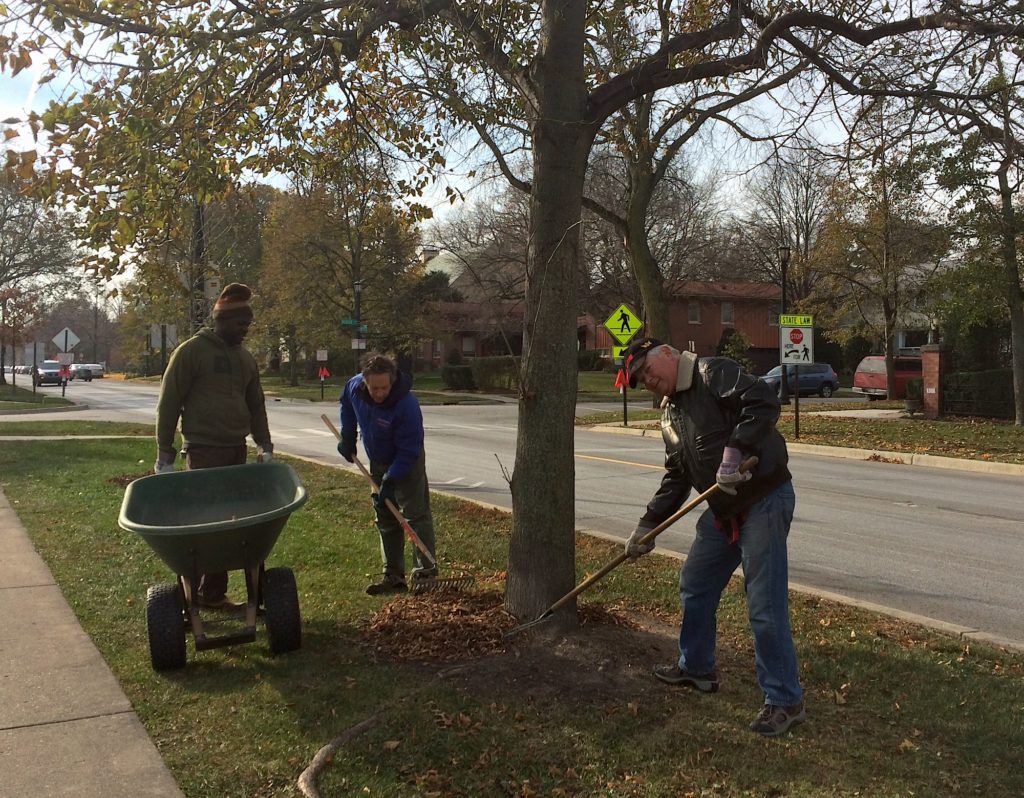
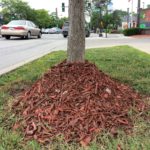
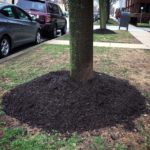 Here’s a simple activity that can help a street tree live long and prosper. Look in front of your house or building. Do the trees look like this? Generally speaking, mulch is helpful for trees: it keeps the soil moist, makes damage from mowers and string trimmers less likely, and helps keep down weeds. But “volcano mulching” like this is bad for trees; it holds moisture against the bark and can make them rot. (The same goes for piled-up dirt.) As a rule of thumb, mulch should be about 3 inches deep, 3 inches away from the trunk of the tree, and at least 3 feet wide. Shredded leaves are what most trees appreciate, since most of them evolved in forests; but other organic materials are fine, too. Remove weeds first. And when hot, dry weather comes, give your trees some water.
Here’s a simple activity that can help a street tree live long and prosper. Look in front of your house or building. Do the trees look like this? Generally speaking, mulch is helpful for trees: it keeps the soil moist, makes damage from mowers and string trimmers less likely, and helps keep down weeds. But “volcano mulching” like this is bad for trees; it holds moisture against the bark and can make them rot. (The same goes for piled-up dirt.) As a rule of thumb, mulch should be about 3 inches deep, 3 inches away from the trunk of the tree, and at least 3 feet wide. Shredded leaves are what most trees appreciate, since most of them evolved in forests; but other organic materials are fine, too. Remove weeds first. And when hot, dry weather comes, give your trees some water.
Mulching tips are available from the Morton Arboretum. And for more background, see the June 12, 2019 Evanston RoundTable.
— Wendy Pollock
